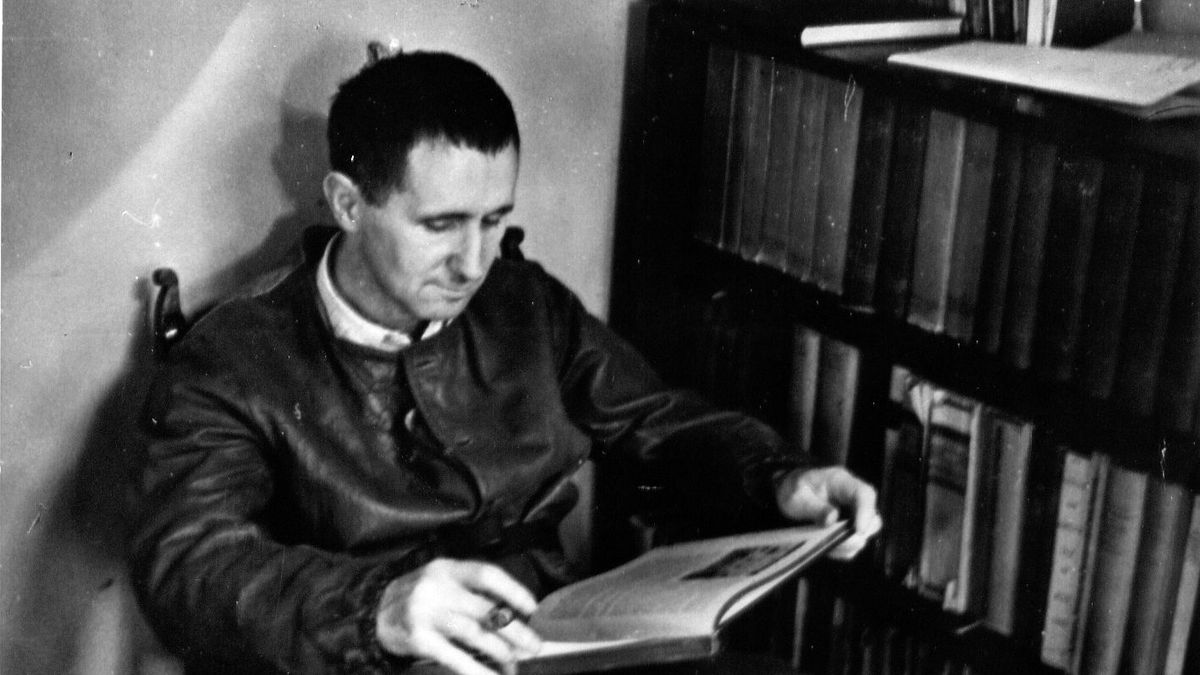Brecht defended all his life a theory in which he fervently believed.
He said, if I don’t interpret it wrong, that a work of art, a film, a play, a piece of music, a painting, can be understood by anyone, regardless of their social status or studies.
And that the apparently most difficult or complex work can be understood if the person who created it – the author – gives some elements, as if they were threads to which those who read, hear or see it can cling.
Because you can talk about football or tango and be dark, difficult, boring. And it can be referred to painting or literature – for example – and even for those who do not understand it, if the person explaining it is clear, it can be enjoyable.
I totally share this opinion of B. Brecht.
This writer wrote numerous famous works that were even made into films and theater.
Many of them were performed in almost every country in the world, including our country.
Titles?: “Mother Courage”, “The Opera of Two Cents”, there is another “El Círculo de Tiza Caucasiano”, which took place in Buenos Aires at the Teatro San Martín.
The year was 1918. Bertolt Brecht, aged 20; It was from 1898, I said it, he was studying medicine.
The First World War was almost over.
They call him from the German army and send him to hospitals near the front.
His contact for a few weeks with soldiers returning from battle overwhelms him.
He finds only pain, young men mutilated, others mentally destroyed.
He remains in that task for a few months, because the war is already over, I said it before. But this brief but terrible experience is reflected in all of his later work.
Hence his fierce opposition to any war conflict. He has understood that a battlefield is a cemetery with many men who still live, that in wars we only kill and die, although some speak of triumph.
I would add an aphorism that I wrote a long time ago: “Many sing when they go to war. But none when came back.”
Year 1933. Nazism arrives in Germany. Bertolt Brecht is German, he is a Christian, he is not even a politician. He has won the first national theater prize in his country.
But he can’t stand violence or racism, the inability to express disagreement by some measures, nor injustice. And then it disturbs the German government.
They disturb his dignity, his courage, his sincerity. That is to say, they bother his virtues and not his shortcomings, which as a man he will have.
Only his international prestige saves his life. But not his assets, which are confiscated for alleged tax violations. An argument, of course.
He decides to leave the country. “He can’t breathe the thin air,” he declares upon arriving in Prague, Czechoslovakia.
His books, which only speak of love, understanding, tolerance, are burned in a public square in Berlin.
Keep writing.
1941 arrives. He is 43 years old. The Second World War is in full swing.
He lives in the USA, in Hollywood. There he meets Carlitos Chaplín, who, noble and generous, goes to visit him at the very humble hotel where Bertolt Brecht is staying temporarily.
They have never met in person. Bertolt Brecht is a famous writer, but financially very modest. His continuous moves in Europe have impoverished him.
Chaplin is also famous, but unlike Brecht, he is the owner of a great fortune. It is at its peak. He charges millions of dollars per movie.
Carlitos, sensitive and generous, offers him a sum astronomical for a contract as a screenwriter for a film.
What he wants is to help him without humiliating the dignity of Bertolt Brecht. It is Chaplin’s nobility disguised under a contract. And whoever conceals his charity is doubly generous.
After the war, Bertolt Brecht returned to Germany where on August 14, 1956, a myocardial infarction definitively silenced this glory of the universal theater that understood that the most ignorant man could, not only grasp the apparently difficult, but also teach something to the wisest man.
And remembering Bertolt Brecht’s meeting with Charles Chaplin and their immediate spiritual approach, there is an aphorism included in the pages of l. “EITHER.”
“True brotherhood does not require blood ties.”
Source: Ambito
David William is a talented author who has made a name for himself in the world of writing. He is a professional author who writes on a wide range of topics, from general interest to opinion news. David is currently working as a writer at 24 hours worlds where he brings his unique perspective and in-depth research to his articles, making them both informative and engaging.




